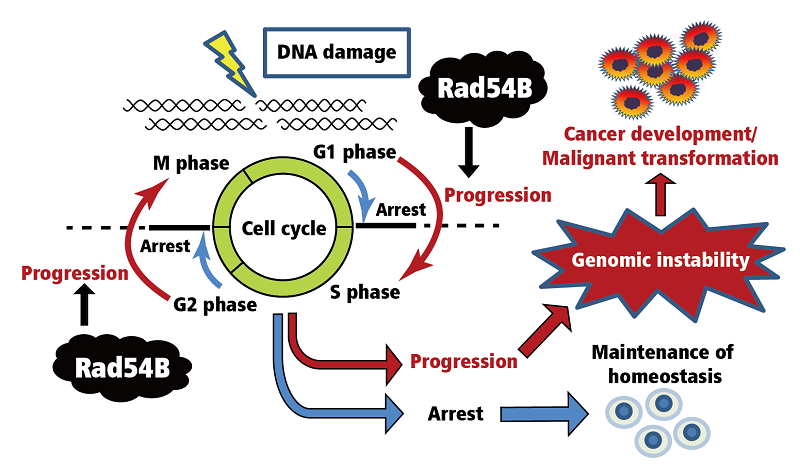Alcohol consumption is a widespread social activity enjoyed by many individuals. However, it is crucial to be aware of the potential risks associated with excessive or even moderate alcohol intake, particularly in relation to cancer prevention and treatment. Numerous studies have linked alcohol consumption to an increased risk of various types of cancer, including breast, liver, colorectal, mouth, throat, and esophageal cancer. In this article, we will explore five essential pieces of information highlighting the importance of limiting alcohol intake for cancer prevention and treatment.
1, Increased cancer risk.
Heavy and regular alcohol consumption has been linked to an increased risk of developing several types of cancer. Some of the most commonly associated cancers with alcohol consumption include breast cancer, liver cancer, colorectal cancer, mouth cancer, throat cancer, and esophageal cancer.
Breast cancer: Studies have shown that even moderate alcohol consumption can increase the risk of breast cancer in women. The risk is higher with heavier and more frequent drinking.
Liver cancer: Chronic and excessive alcohol consumption can lead to liver damage, inflammation, and ultimately increase the risk of developing liver cancer. Alcohol-related cirrhosis is a significant risk factor for liver cancer.
Colorectal cancer: Heavy alcohol consumption has been associated with an increased risk of colorectal cancer. Alcohol can irritate and damage the cells in the colon and rectum, leading to the development of cancerous cells.
Mouth, throat, and esophageal cancer: Alcohol consumption, particularly when combined with tobacco use, significantly raises the risk of developing cancers in the mouth, throat, and esophagus. Alcohol acts as a solvent, making it easier for harmful chemicals in tobacco to penetrate the cells lining these areas, thereby increasing the risk of cancer.
It's important to note that the risk of developing these cancers is influenced by various factors, including the amount and duration of alcohol consumption, genetic predisposition, and overall lifestyle choices. To minimize the risk, it is advisable to limit alcohol consumption or avoid it altogether. Regular screenings and maintaining a healthy lifestyle can also help in early detection and prevention of these cancers.
2, Mechanisms of cancer development.
alcohol can impact the body in various ways that contribute to the development of cancer. Here are some of the mechanisms by which alcohol can increase the risk of cancer:
DNA damage: Alcohol can cause direct damage to the DNA in cells. This damage can disrupt the normal functioning of genes and lead to mutations that promote the development of cancer. DNA damage can occur through various mechanisms, including the production of reactive oxygen species and the interference with DNA repair processes.
Impaired DNA repair: Alcohol consumption can impair the body's ability to repair damaged DNA. Normally, the body has mechanisms in place to detect and repair DNA damage. However, alcohol can interfere with these repair mechanisms, leading to the accumulation of DNA damage and an increased risk of cancer development.
Increased estrogen levels: Alcohol consumption has been linked to increased estrogen levels in the body. Higher estrogen levels have been associated with an increased risk of breast cancer. This hormonal effect may partly explain the association between alcohol consumption and breast cancer risk, particularly in postmenopausal women.
Metabolism and chemical generation: When alcohol is metabolized in the body, it can generate harmful byproducts, such as acetaldehyde, which is a known carcinogen. Acetaldehyde can cause DNA damage, disrupt cellular processes, and promote cancer development.
Weakened immune system: Excessive alcohol consumption can weaken the immune system's ability to recognize and destroy cancer cells. The immune system plays a crucial role in identifying and eliminating abnormal cells, including cancer cells. Alcohol can suppress immune function, making the body less effective at combating cancerous cells.
It's important to note that these mechanisms can vary depending on the type of cancer and individual factors. Additionally, other factors, such as co-existing tobacco use or lifestyle choices, can further compound the cancer risk associated with alcohol consumption.
3, Alcohol and treatment complications.
Alcohol consumption can indeed interfere with cancer treatment and its effectiveness in several ways:
Medication interactions: Alcohol can interact negatively with certain medications used in cancer treatment. It can either increase the risk of side effects or reduce the effectiveness of the medications. For example, alcohol can intensify the sedative effects of certain drugs or increase the risk of liver damage when combined with specific chemotherapy drugs.
Reduced efficacy of treatment: Alcohol consumption has been associated with decreased efficacy of cancer treatments, such as chemotherapy and radiation therapy. Alcohol can affect the metabolism and clearance of drugs from the body, potentially reducing their concentration and effectiveness in targeting cancer cells.
Increased toxicity: Alcohol can increase the toxicity of certain cancer treatments. For example, alcohol and certain chemotherapy drugs can both have detrimental effects on the liver. Combining them can lead to increased liver damage and a higher risk of treatment-related complications.
Impaired healing after surgery: Alcohol consumption can hinder the healing process after cancer surgery. Alcohol can interfere with blood clotting, impair immune function, and delay wound healing, all of which are crucial for proper recovery after surgical procedures.
Given these potential complications, it is generally recommended to avoid alcohol during cancer treatment. However, it is essential to consult with your healthcare team regarding specific recommendations based on your individual circumstances and the type of cancer treatment you are undergoing. They can provide personalized guidance and advice on alcohol consumption during treatment to optimize your outcomes and minimize risks.
4, Synergistic effects with other risk factors.
the negative impact of alcohol on cancer risk can indeed be magnified when combined with other risk factors, such as smoking. The simultaneous presence of multiple risk factors can have a synergistic effect, leading to an even higher risk of developing certain cancers. Here are a few examples:
Smoking and alcohol: The combination of heavy alcohol consumption and smoking significantly increases the risk of developing cancers, especially those of the mouth, throat, and esophagus. Alcohol acts as a solvent, making it easier for harmful chemicals in tobacco smoke to penetrate the cells lining these areas. The combined effects of alcohol and smoking can lead to cumulative damage and an increased risk of cancer development.
Hepatitis infection and alcohol: Chronic alcohol consumption, when combined with viral hepatitis infection (such as hepatitis B or C), can greatly increase the risk of liver cancer. Both alcohol and viral hepatitis independently contribute to liver damage, inflammation, and cirrhosis. When combined, their harmful effects can synergistically promote the development of liver cancer.
Obesity and alcohol: Obesity is a known risk factor for several types of cancer, including breast, colorectal, and liver cancer. Alcohol consumption, especially heavy drinking, can further increase the risk of these cancers in individuals who are obese. The combination of excess body weight and alcohol can lead to chronic inflammation, hormonal imbalances, and other metabolic changes that promote cancer development.
These are just a few examples of how the combination of alcohol with other risk factors can have a magnifying effect on cancer risk. It is crucial to recognize the interactions between different risk factors and take comprehensive measures to minimize their impact. This may involve reducing alcohol consumption, quitting smoking, maintaining a healthy weight, and addressing other lifestyle factors that contribute to cancer risk. Consulting with healthcare professionals can provide personalized guidance and support in managing these risk factors effectively.
5, Benefits of reducing alcohol intake.
reducing alcohol intake or abstaining from alcohol can have numerous benefits, including a significant reduction in the risk of developing alcohol-related cancers. Here are some key benefits associated with reducing alcohol consumption:
Lowered cancer risk: By reducing or eliminating alcohol intake, individuals can reduce their risk of developing alcohol-related cancers, such as breast, liver, colorectal, mouth, throat, and esophageal cancer. Studies have shown that even moderate alcohol consumption can contribute to an elevated risk, so minimizing or avoiding alcohol altogether can have a positive impact on cancer prevention.
Improved overall health: Alcohol consumption is associated with various health problems beyond cancer, including liver disease, cardiovascular disease, gastrointestinal issues, and mental health disorders. By reducing alcohol intake, individuals can improve their overall health and well-being, leading to a lower risk of alcohol-related health complications.
Enhanced response to cancer treatment: Alcohol can interfere with the efficacy of cancer treatment, as mentioned earlier. By reducing alcohol intake, individuals can optimize the body's response to cancer treatments such as chemotherapy, radiation therapy, and surgery. It can improve treatment outcomes and potentially enhance the body's ability to recover and heal.
Reduced risk of other diseases: Alcohol consumption has been linked to an increased risk of conditions such as pancreatitis, immune system disorders, and neurological disorders. By reducing alcohol intake, individuals can lower their risk of these non-cancerous diseases and improve their overall health status.
Improved lifestyle choices: By reducing alcohol intake, individuals often make positive changes in their lifestyle choices. They may adopt healthier habits such as engaging in regular exercise, following a balanced diet, getting sufficient sleep, and managing stress effectively. These lifestyle modifications can have multiple health benefits and further contribute to reducing the risk of various diseases, including cancer.
It's important to note that the benefits of reducing alcohol intake may vary depending on individual factors such as overall health, genetic predisposition, and lifestyle choices. It is advisable to consult with healthcare professionals for personalized advice and guidance on alcohol consumption and its impact on specific health conditions.
The significance of limiting alcohol intake for cancer prevention and treatment cannot be overstated. Research consistently shows that heavy and regular alcohol consumption can contribute to the development of various cancers, while even moderate drinking can elevate the risk. Understanding the mechanisms through which alcohol affects the body, such as DNA damage, impaired DNA repair, increased estrogen levels, harmful metabolites, and weakened immune function, highlights the need to exercise caution. Furthermore, alcohol consumption can complicate cancer treatment, hinder medication effectiveness, and impede the healing process after surgery. By reducing alcohol intake or abstaining altogether, individuals can significantly lower their risk of alcohol-related cancers and improve their overall health. Embracing healthier choices not only reduces the chances of developing cancer but also enhances the body's ability to respond to treatment, leading to a better quality of life. Remember, it is always advisable to consult with a healthcare professional for personalized guidance regarding alcohol consumption and its impact on your specific circumstances.
:max_bytes(150000):strip_icc()/cancer-causes-513773_FINAL-ed7f995b3eca46eca8064643b15ce581.jpg)




Dr. Zarna Shah is a Dietitian/Nutritionist and Sports Nutritionist in Andheri, Mumbai and has an experience of 13 years in these fields. Dr. Zarna Shah practices at Diet Wise Clinic in Andheri, Mumbai.
ReplyDeleteContact us at:
(+91) 9820446544
info@dietwise.in